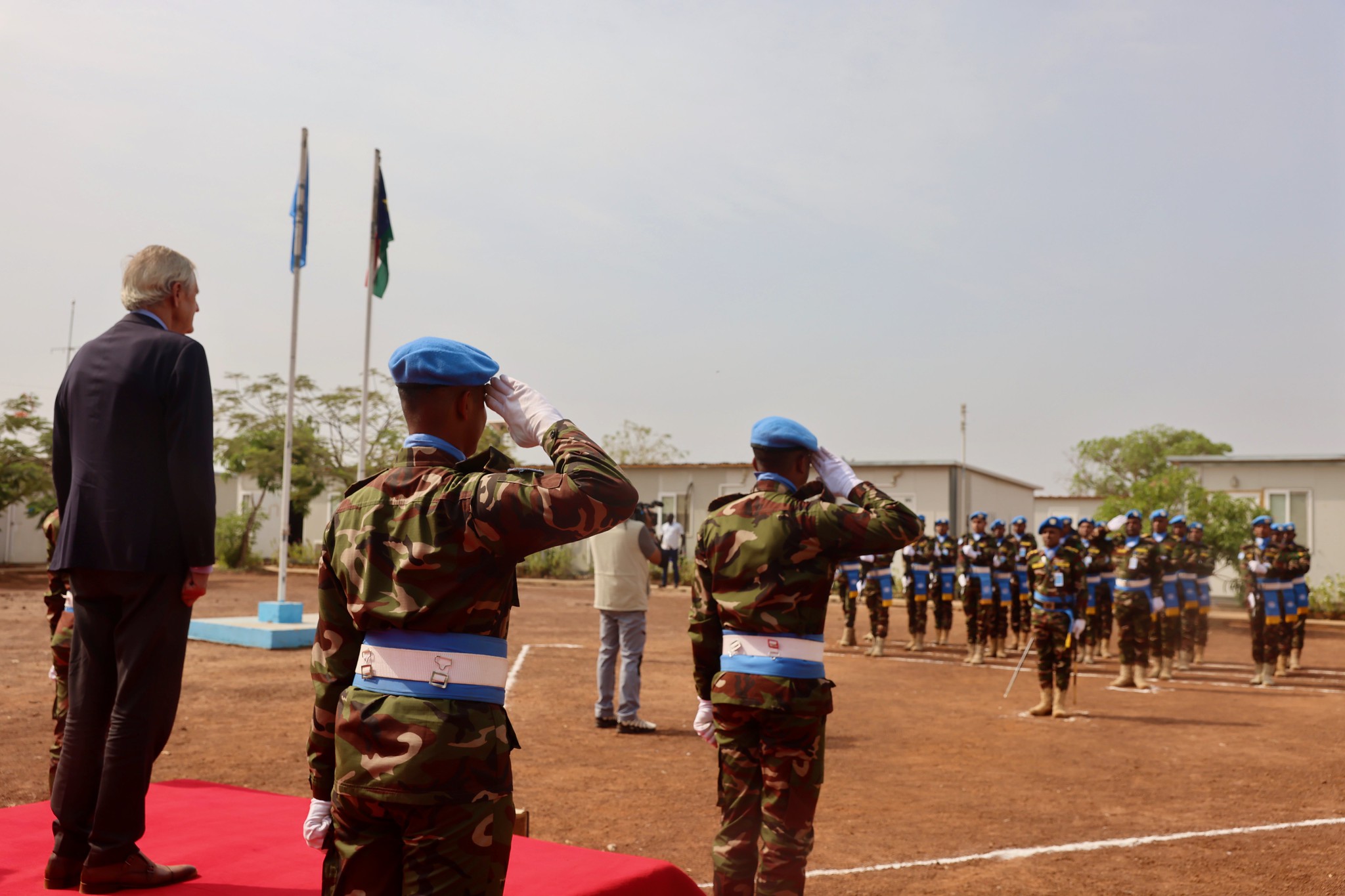Sudan: Path to Peace Unclear
April 15 marked one year of fighting in Sudan between the military and rebel forces, each appearing to be loyal only to power and profit.
April 15 marked one year of fighting in Sudan between the military and rebel forces, each appearing to be loyal only to power and profit.
The following article was published in the May-June 2024 issue of NewsNotes.
The war in Sudan between the Sudanese Armed Forces (SAF) and the paramilitary Rapid Support Forces (RSF) is one year old and has left tens of thousands dead, ten million displaced inside and outside the country, and 18 million food insecure.
U.S. Special Envoy for Sudan, Tom Perriello, reiterated his support for the Jeddah process as the most viable path towards a lasting peace agreement in Sudan. The Jeddah process, facilitated by the United States and Saudi Arabia, has facilitated discussions regarding humanitarian aid distribution and a ceasefire. “We believe that the best platform for formal negotiations is for Saudi Arabia to host negotiations in Jeddah that is inclusive of key partners,” Perriello told the Sudan Tribune.
Earlier in April, Perriello said the talks between the Sudanese army and the Rapid Support Forces (RSF) would resume after the end of Ramadan. Previous dates had been scheduled and then postponed. No new date is now determined.
The primary concern in the peace process is interference by external actors who supply weapons and materials to rebel groups. “We are concerned about reports that the UAE is providing material support for the RSF and have directly raised our concerns about this with Emirati officials,” Perriello said.
The paramilitary RSF fighters led by Mohamed Hamdan Dagalo, known as Hemedti, have an abundance of AK-pattern rifles and more sophisticated high-caliber weapons. A 2019 investigation by Global Witness revealed that more than 1,000 vehicles–most of them Toyota Hilux pick-up trucks–were purchased from dealers in the United Arab Emirates, and later equipped with mounted weapons. The funds to purchase the vehicles were likely sourced from Hemedti’s vast gold mines in Sudan.
A 2023 article by Geneva Graduate Institute cited video posted on the social media platform X of RSF fighters holding man-portable air defense systems, or manpads, on the steps of the presidential palace in Khartoum. Jubilant fighters also waved various small arms, including G3A4 rifles that may be of Saudi origin.
“The manpads could target Sudanese army aircraft and are a serious threat to civil aviation,” the report said. The report also mentions allegations the Wagner Group – a Russian paramilitary force with close ties to Hemedti and with mutual gold mining interests – offered to supply the Rapid Support Forces with arms, including manpads.
The desire for power and profit at any cost is driving the conflict in Sudan, said Niemat Ahmati, a Sudanese woman peace activist and founder of Darfar Womens Action Group. “It was a mistake for civilian leadership to allow SAF to be at the table [of the Transitional Sovereignty Council],” Ahmati told a meeting of faith-based peace and justice advocacy organizations in Washington, D.C. on April 19. She was referring to the coup led by SAF in 2021 that dissolved the government and ousted the civilian members of the Transitional Council, turning it into a military junta. “The SAF ignored them and pursued war for power and profit – fighting for gold and oil.”
The extent of the humanitarian crisis in Sudan is vast says a new report by the Council of Foreign Relations. “The conflict is destroying Sudan’s infrastructure. Air strikes and shelling have hit hospitals, prisons, schools, and other facilities in dense residential areas.”
The resulting rise in food and fuel costs has pushed 18 million people to be food insecure. The World Food Program says Sudan could become the site of “the world’s largest hunger crisis” if the fighting doesn’t stop. In total, almost 25 million people, or more than half of Sudan’s population, need aid and protection, according to the UN.
More than 570,000 people have fled Sudan and entered Chad. Another estimated 500,000 refugees are South Sudanese who had previously fled to Sudan and have since returned to avoid this war.
UN experts say that Sudan is experiencing the world’s largest internal displacement crisis, and that the total number of refugees will keep growing as fighting continues. There have also been reports of ethnically driven mass killings and weaponization of sexual violence against the Masalit people, particularly in the West Darfur city of El Geneina. Both the SAF and RSF have been accused of war crimes, which a UN fact-finding mission is formally investigating.
The easy access to weapons fuels the violence, a five-member panel of experts on Sudan told the UN Security Council in their latest report. U.S. Ambassador to the United Nations Linda Thomas-Greenfield described the report’s findings as “stomach-churning” and said it detailed “atrocity after atrocity after atrocity.”
“[The conflict], as this report details, is being fueled by arms transferred from a handful of regional powers – arms transfers that must stop,” Thomas-Greenfield said. The world is left to wonder “How?”
Photo of a UN Chief of Peace Operations, Jean-Pierre Lacroix visiting Wau and Kuajok to get a clear sense of how the UN family can help sustain peace in wake of new Sudanese arrivals and border disputes with Sudan over Abyei, February 2024 by Zen Yin/UNMISS via Flickr.

